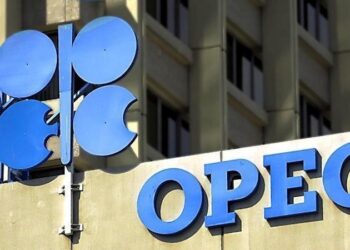A total of 21 companies have delisted voluntarily from the Nigerian stock market between 2002 to 2022 as they could no longer have the capacity to continue to play in the capital market.
It was also found out that most of the companies that delisted voluntarily from the stock exchange had cited harsh economic climate and parent company buy-out as reasons.
The term “Delisting” is the removal of a security from the official list of a stock exchange on which the company trades. Companies are delisted for recurring and possibly irredeemable inability to comply with the listing requirements of the Stock Exchange, especially in the areas of timely and accurate rendition of operational and financial accounts and other corporate governance issues. Once delisted the security ceases to be traded on the exchange.
A compulsory or regulatory delisting occurs when a company is forced to delist itself from an exchange because it fails to meet the listing requirements mandated by the exchange. While, voluntary delisting is the deliberate withdrawal of the shares of a company from the Exchange by the board of directors, acting on the mandate of the statutory majority of the shareholders.
Data obtained from the NGX showed that 21 companies got delisted from NGX. They are 11 Plc, AG Leventis Nigeria, Avon Crown Caps and Containers, CFAO Nigeria, Dangote Flour Mills, First Aluminum Nigeria, Enpee, Great Nigeria Insurance, HIS Nigeria, Impresit Bakolori, Incar, Nampak, Newrest ASL Nigeria, Nigerian Bottling Company (NBC), Nigerian Textile Mills, Paints and Coatings Manufacturers Nigeria, Poly Products, Seven-Up Bottling Company, Studio Press Nigeria, Union Diagnostic & Clinical Services and United Nigeria Textile.
Securities and Exchange Commission (SEC) said the commission had been working collaboratively with the Exchange, adding that it would continue to support the Nigerian Exchange (NGX) to grow the market capitalisation and reduce the incidence of delisting.
The managing director of Highcap Securities Limited, Mr. David Adonri, said there is free entry and free exit from the capital market by publicly quoted companies.
Adonri, however, said that delisting is not a good omen for the capital market, which is already adjudged to be shallow, saying that the capital market community is already advocating a legislation to make incentives available to encourage listing.
He added that “they are also advocating legislation to compel large companies to be listed and remain listed.”
Also, the chief operating officer of InvestData Consulting Limited, Ambrose Omordion said that “it is highly important for companies to comply with the post-listing requirements of the NGX, and all other regulations guiding the capital market. That is the only way to ensure that shareholders’ investments are safeguarded.”
He stated that in its determination to achieve a world-class capital market and guarantee investor confidence, the NGX has undertaken steps to penalize erring quoted companies who fail to adhere to its listing stipulations; including prompt disclosure.
In the same vein, a stockbroker, Mr. Tunde Oyediran, said the stock market was a barometer that gauges the mood of the economy.
He said the Nigerian stock market was established to serve as long term investment outlet and platform for raising long term capital by fund users.
Oyediran added that the market has achieved this objective to a modest extent. If the economy is to adequately create wealth and generate productive employment, more is expected from the Nigeria’s capital market.
According to him, raising fresh capital requires investors’ willingness to buy shares, and that quoted companies had to exercise caution in order not to risk under-subscription.





